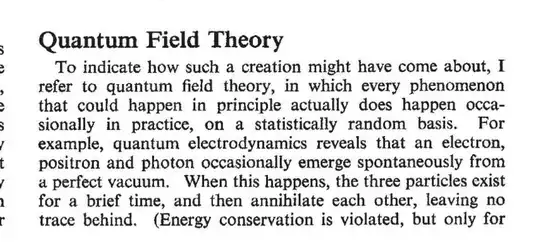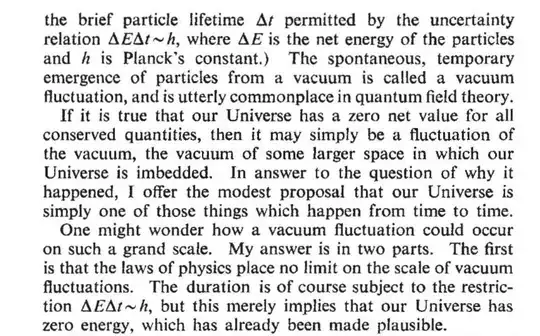This is a screenshot from Edward P Tyron's article "Is The Universe a Vaccum Fluctuation?"
The explanation Energy-time uncertainty principle from Griffiths:
$Δt$ represents the amount of time it takes the expectation value of $Q$ to change by one standard daviation. $Δt$ depends entirely on what observable $(Q)$ you care to look at- the change might be rapid for one observable and slow for another. But if $ΔE$ is small, then the rate of change of all observables must be very gradual; or to put it the other way around, If any observable changes rapidly, the 'uncertainty' in the energy must be large.
Is the interpretation of Energy-time uncertainty principle different for relativistic quantum mechanics/QFT which this article is addressing? My confusion arises from a strong remark of Griffiths, it doesn't seem he intends to restrict his words only for non-relativistic QM.
"It is often said that the uncertainty principle means energy is not strictly conserved in quantum mechanics-that you're allowed to "borrow" energy $ΔE$, as long as you "pay it back" in a time $Δt ≈ h/(4πΔE) $; the greater the violation, the briefer the period over which it can occur. Now, there are many legitimate readings of the energy-time uncertainty principle, but this is not one of them. Nowhere does quantum mechanics license violation of energy conservation, and certainly no such authorization entered into derivation of Equation 3.76. But the uncertainty principle is extraordinarily robust: It can be misused without leading to seriously incorrect results, and as a consequence physicists are in the habit of applying it rather carelessly."

